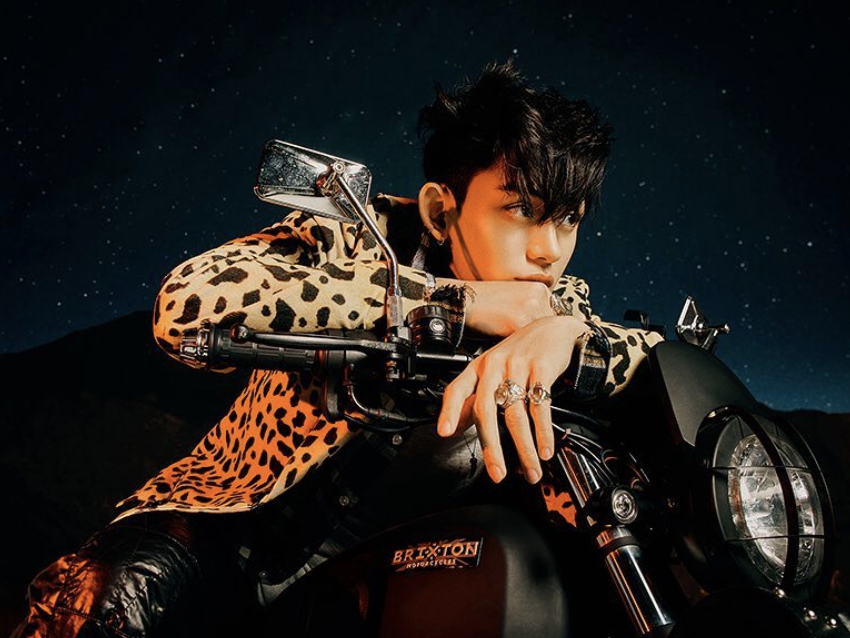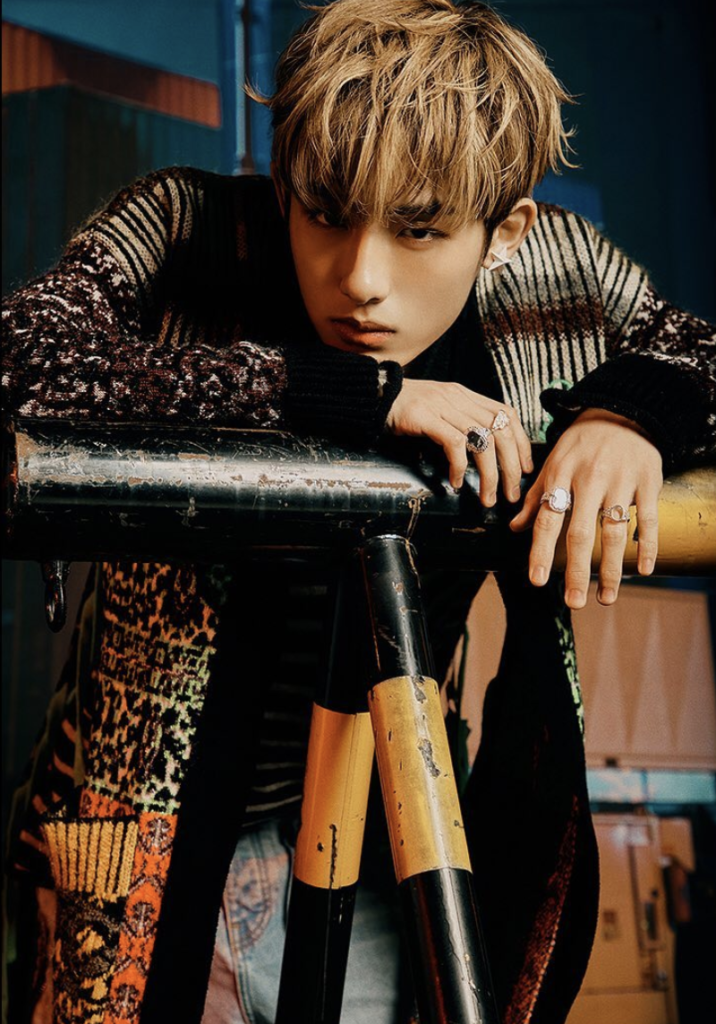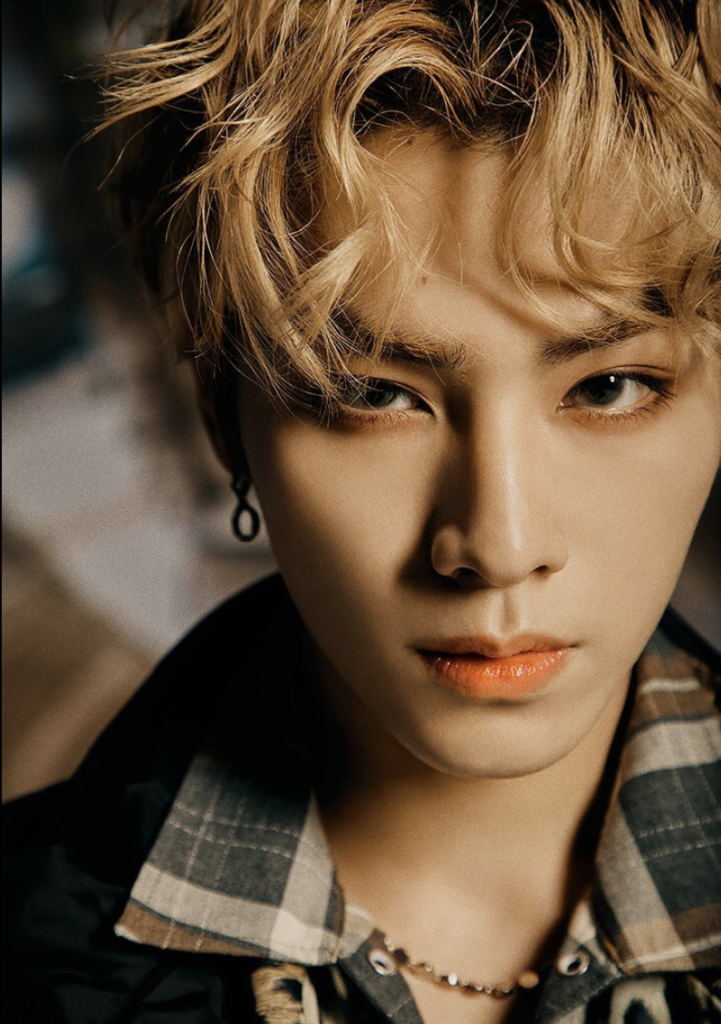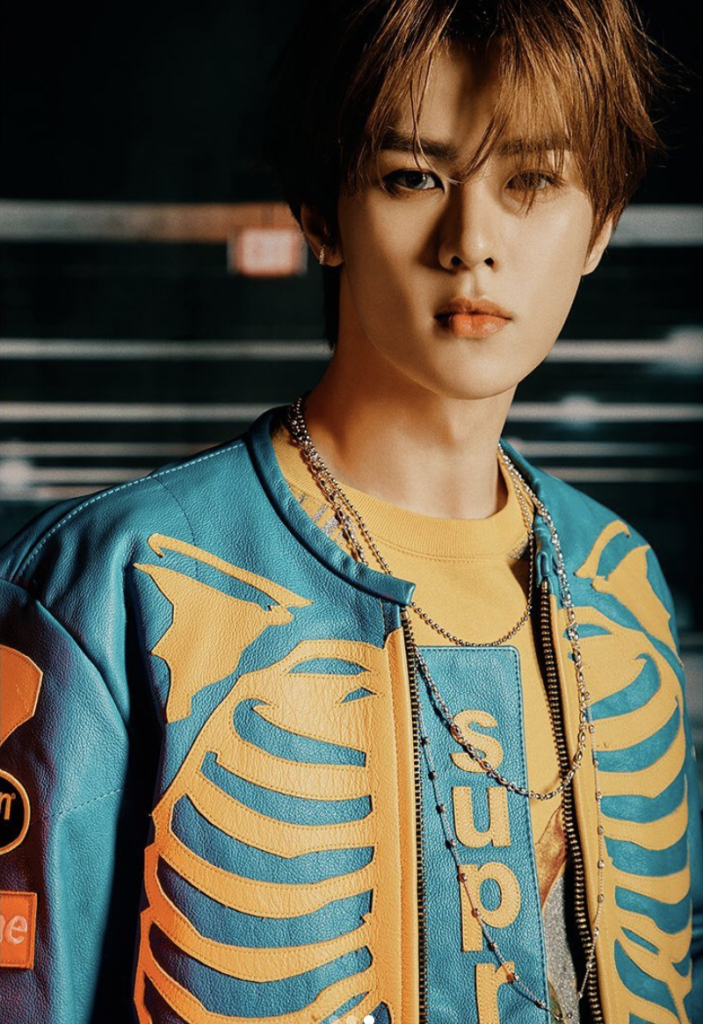
Dreams. The figments of our night time imaginations, the aspirations we spend our lives toiling for, the painfully intangible desires that can never be fulfilled, the candy-bright joy propelling us from one hope to the next. The word “dream” is so hard to pin down, so hard to quantify in just a single sentence. What really is a dream?
This question lies at the heart of WayV’s latest EP, Kick Back. They interpret and reinterpret the word “dream,” eventually coming up with several distinct definitions. Kick Back spans a variety of genres and a variety of emotions, but ultimately, it’s all bound together by WayV’s fascination with dreams.
“Kick Back,” the title track, is not one of WayV’s strongest songs, but it is certainly solid. Here, the concept of a dream remains ambiguous and undefined; it is not so much the philosophical underpinning of “Kick Back,” but rather yet another flashy element adding a sci-fi oomph. This title track possesses many familiar aspects of WayV’s past work: a buzzy, rumbling beat, as well as references to “transcending time” and “rewriting meaningless laws.”
Surprisingly, though, “Kick Back” does not contain an electric guitar-laced dance break — an element that has been present in WayV’s title tracks ever since “Take Off.” Given this omission, “Kick Back” feels less like a WayV song and more like a SuperM one. The soaring prechorus especially feels ripped straight from SuperM’s let’s conquer the world! playbook.
Some blurring between WayV (and the greater NCT brand) and SuperM is to be expected, as the groups have overlapping members and are both signed to SM Entertainment. Perhaps SM’s latest generation of boy groups are just going through a modes-of-transportation phase — see WayV’s “Moonwalk,” NCT 127’s “My Van,” NCT Dream’s “Ridin’,” and literally every SuperM title track in existence.
But given Shinee’s unexpectedly modern “Don’t Call Me,” it seems that this particular brand of hip-hop-laced dance pop is spreading fast. This in turn raises a few questions: what will Exo sound like when they return from military hiatus? Will SM ever debut a new boy group with a new concept, or are they pouring all their trainees into the endless NCT umbrella? Are Super Junior, who are managed separately by Label SJ, the last bulwark against the NCT-ification of SM boy groups?

Kick Back (the full EP) is, like “Kick Back” (the title track), perfectly fine. But it doesn’t quite live up to WayV’s past works. Of course, that is quite a high bar to pass; their album Awaken the World was one of the most consistent and compelling albums released in 2020. Still, Kick Back works in fits and starts.
First, let us discuss the good. Nowhere is the dream concept better-executed than in “Horizon,” a ballad where only three vocalists (Xiaojun, Kun, and Ten) sing. Surprisingly, this song comes in the middle of Kick Back; typically, ballads tend to appear at the end of albums. “Horizon” compares the feeling of separation to ocean horizons:
You and I are like the sky and the sea
Here at the horizon, relinquishing our embrace
I understand it all
The farther I walk from you, the harder it is to for us to separate
The sky and the sea are the same color
Why are we so far away, so filled with yearning?
…
Oh, even though this distance separates you and I
Heavy rain is the only thread sewing sky and sea together

Horizons are often used as metaphors for new beginnings; they are far, far rarer within the context of separation. “Horizon” frames the ocean horizon as a line where the sea and the sky meet, but also as a line that divides the two — a unique metaphor for separated friends, lovers, or family members. During this pandemic, when travel restrictions prevent millions from seeing their loved ones, “Horizon”’s lyrics are incredibly prescient.
The R&B-influenced “All For Love” features equally compelling lyrics. “All For Love”’s Chinese title is “梦尽” (mèng jìn), which roughly translates to “depleted of dreams.” Interestingly though, this phrase does not ever appear in the song; the sole instance of “尽” refers to love: “Hypnotizing myself until love, too, is depleted.”
Instead, “梦境” (mèng jìng), referring to “dreamscapes” or “dreamland,” features prominently in the lyrics — WayV certainly do not seem depleted of dreams. They ruminate:
As my dreams have stopped replaying our memories
I’m ready to pull away and let go of our nightly grievances
Flickering bright and dim, there’s no way to return to the past
WayV aren’t depleted of literal dreams — indeed, the entire song is an escape into dreamland. Instead, they are depleted of the hope of fulfilling their goals (just like the English word “dream,” 梦 denotes both literal dreams and aspirations).

Indeed, Yangyang raps at the end, “I’m lying to myself; this is a dream.” It is no accident that 梦尽 and 梦境 sound so similar; WayV’s wordplay highlights the complexity of their situation. They both want and don’t want to relinquish their love; their daydreams spiral into nightmares.
The remaining two b-sides, “Action Figure” and “Good Time,” continue with references to dreams. However, their lyrics fail to be as fleshed-out. “Good Time” is perhaps the most generic song in Kick Back — its lyrics constitute a pretty standard love song; here, WayV dreams only of their lover. “Good Time”’s blend of R&B and hip-hop is similarly unremarkable. This b-side is by no means bad, yet it feels painfully colorless given WayV’s idiosyncratic past works.
“Action Figure” is a slight improvement. This b-side builds an interesting concept: the song is told from the POV of an action figure who chafes against his own constraints (after all, he is a child’s toy!) but hopes to inspire others into achieving their dreams. While the concept is fascinating, non sequiturs such as “So drippy, so drippy, so drippy / See you nodding and you know it’s so drippy” detract from the song’s lyrical cohesion.
Similarly, “Action Figure”’s music displays some highly original ideas, but fails in its execution. The song opens with a distorted scatting sample — a bubbly, unique form of percussion — but quickly switches to far more generic trap percussion. The resulting mixture of brass, trap, and latin-inspired flourishes is pleasant, but not nearly as inspired as the song’s intro would have you believe.

Despite some of Kick Back’s worst tendencies (sometimes generic instrumentation), it also yields a few gems. The thoughtful lyrics of “Horizon” and “All for Love” far outweigh the blandness of “Good Time.” In fact, it is hard to recall a WayV ballad stronger than “Horizon.” Kick Back has its highs and its lows, but ultimately this mini album remains a cohesive unit — tied together by its careful consideration of dreams.
(YouTube. Lyrics via Genius [1][2], translated by Seoulbeats.)


